Le camarade infidèle
Year: 1922
Author: Jean Schlumberger (1877 - 1968)
Publisher: Éditions de la Nouvelle revue française
Heroic lie
Schlumberger wrote a series of psychological novels about individuals, which also describe their surrounding milieus, mostly families, in passing. The action in Le camarade infidèle takes place mostly through dialogue. The theme was typical for the period after World War I: the sudden death of a soldier, making him the hero he never was. In reality he didn't die a hero's death, but was killed while retreating. In the eyes of one relative, an old general, he is now a hero; for his fellow soldier, he is a good comrade; however his wife commemorates him in the way she knew him before the war: as an ordinary man. All are in doubt as to whether they should remain faithful to the image they have. Brother Thomas ultimately fights his own battle, one which seems too pure for the others. He holds forth about the heroic lie, and finds that nobody has a right to such lies, and above all that whoever compromizes himself in such a manner forgets that the desire for truth ultimately always reveals itself.
Two copies
The copy in the Koopman Collection is number 719 of the 790 copies printed on Lafuma paper, thereby part of the Édition originale. That isn't a true first edition, but rather a deluxe edition of the first edition. Partial editions like these are sometimes printed in larger sizes, as can be read here in the colophon: 'après impositions spéciales 108 exemplaires' have been printed 'in-4º tellière'. That means that the typesetting was re-done for 108 copies, with wider margins, and printed on quarto-size paper, instead of the usual octavo size. This copy has a simple - routine - autograph dedication from Schlumberger to Koopman.
The Koopman Collection holds a second copy of this book, from the 15th printing, also with a handwritten dedication from the author to L.J. Koopman. This second copy (shelf-mark KW Koopm P 129) is part of the so-called Collection Personnelle, which consists of books that were special to Koopman for a variety of reasons, sometimes because the represented the bond between Koopman and Anny Antoine, such as the plays that they had seen together. It is unclear why the second copy of this book by Schlumberger is included in that category.
Bibliographical description
Description: Le camarade infidèle / Jean Schlumberger. - Éd. orig. - Paris : Éditions de la Nouvelle revue française, 1922. - 197 p. ; 20 cm
Printer: Paul Pigelet & fils (Orleans, Loiret)
Edition: 898 copies
Exemplaire: Number 719 of 790 on Lafuma
Note: With autograph dedication from Schlumberger to Koopman
Bibliography: Mahé III-400
Shelfmark: KW Koopm C 40
Shelfmark second copy: KW Koopm P 129
References
- Auguste Anglès, André Gide et le premier groupe de La Nouvelle Revue Française. Paris, Gallimard, 1978-1986
- Paul van Capelleveen, Sophie Ham, Jordy Joubij, Voices and visions. The Koopman Collection and the Art of the French Book. The Hague, Koninklijke Bibliotheek, National Library of the Netherlands; Zwolle, Waanders, 2009
- Paul van Capelleveen, Sophie Ham, Jordy Joubij, Voix et visions. La Collection Koopman et l'Art du Livre français. La Haye, Koninklijke Bibliotheek, Bibliothèque nationale des Pays-Bas; Zwolle, Waanders, 2009
- Marie Delcourt, Jean Schlumberger: essai critique. Paris, Gallimard, 1945
- André Gide, Jean Schlumberger, Correspondance 1901-1950. Paris, Gallimard, 1993
- Jean Lambert, Remarques sur l'oeuvre de Jean Schlumberger. Lyon, Centre d'Études Gidiennes, 1999
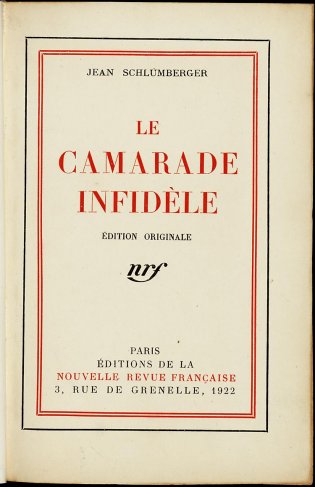
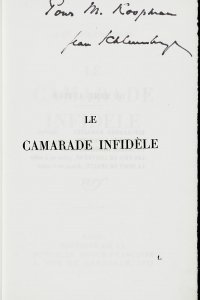
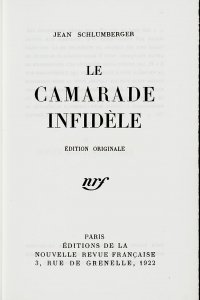
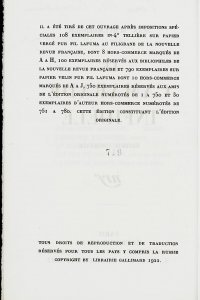
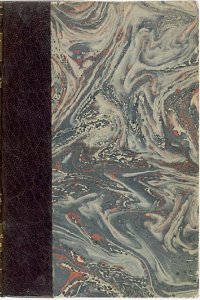
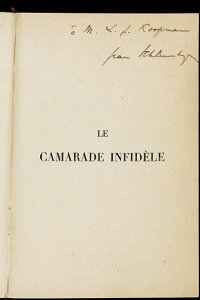
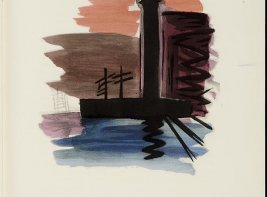
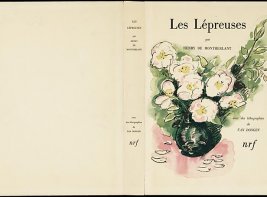
![André Lhote, Jean Cocteau, Escales (1920), p. [63]](/sites/default/files/styles/gerelateerd_item_mob/public/images/escales_p63a.jpg?h=7a269184&itok=YEK0cX_s)